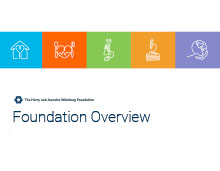An estimated one in three Kauaʻi children are food insecure, and 58 percent of residents who struggle to access food do not qualify for public assistance programs, according to the latest survey from Malama Kauaʻi, a nonprofit working to increase local food production and access for communities on Kauaʻi.
The report on findings from the nonprofit’s 2022 Food Insecurity survey shares the perspectives and insights from over 470 Kauaʻi residents who have experienced food insecurity—defined as running out of food or money to buy food in a given month or worrying about having enough food—within the past six months. It is the latest step in evaluating community priorities for the Kauaʻi Food Access Plan, which is working to increase healthy food access for keiki, kūpuna, and other low-income residents in Kaua‘i County.
The situation is not improving for many, with 36 percent of respondents saying their situation is getting worse. “Each day revolves around how we are going to eat and getting our next meal and what sacrifices we are going to need to make in order to eat the next day,” one participant shared.
Mālama Kaua‘i’s Moloa‘a ‘ĀINA Center, a Weinberg Foundation grantee, is one of several organizations working to address food insecurity and specifically the long-standing bottlenecks in local food processing and distribution that once opened up will allow hundreds of Kaua‘i farms, ranches, and food producers to get more of their food into local hands. With a focus on food access for the island’s most vulnerable communities, over 50 percent of the food hub’s retail sales are made using Electronic Benefits Transfer, an electronic system that allows people to pay for food using the Supplemental Nutrition Assistance Program (including DA BUX Double Up Food Bucks). Moloa‘a ‘ĀINA Center’s commercial side distributes food to early childhood education centers, schools, food pantries, shelters, and others. With only a $5 delivery free for island-wide service, they are helping many kūpuna and families without transportation needs access healthy, local food brought right to their door.
For more details on the survey results, residents’ stories, and community-informed solutions, check out the full report.




